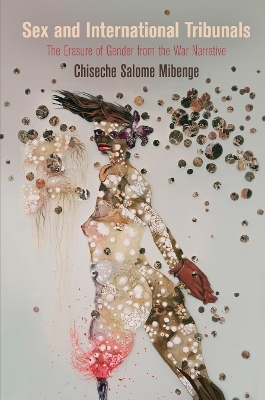
Sex and International Tribunals
The Erasure of Gender from the War Narrative
Seiten
2013
University of Pennsylvania Press (Verlag)
978-0-8122-4518-9 (ISBN)
University of Pennsylvania Press (Verlag)
978-0-8122-4518-9 (ISBN)
Chiseche Salome Mibenge applies stringent analysis to the humanitarian but flawed legal narratives of sexual violence in Rwanda and Sierra Leone, calling for more nuanced analysis of how gender shapes violence and access to justice for survivors.
Before the twenty-first century, there was little legal precedent for the prosecution of sexual violence as a war crime. Now, international tribunals have the potential to help make sense of political violence against both men and women; they have the power to uphold victims' claims and to convict the leaders and choreographers of systematic atrocity. However, by privileging certain accounts of violence over others, tribunals more often confirm outmoded gender norms, consigning women to permanent rape victim status.
In Sex and International Tribunals, Chiseche Salome Mibenge identifies the cultural assumptions behind the legal profession's claims to impartiality and universality. Focusing on the postwar tribunals in Rwanda and Sierra Leone, Mibenge mines the transcripts of local and supranational criminal trials and truth and reconciliation commissions in order to identify and closely examine legal definitions of forced marriage, sexual enslavement, and the conscription of children that overlook the gendered experiences of armed conflict beyond the mass rape of women and girls. In many cases, a single rape conviction constitutes sufficient proof that gender-based violence has been mainstreamed into the prosecution of war crimes. Drawing on anthropological research in African conflicts, and feminist theory, Mibenge challenges legal narratives that reinscribe essentialized notions of gender in the conduct and resolution of violent conflict and uncovers the suppressed testimonies of men and women who are unwilling or unable to recite the legal scripts that would elevate them to the status of victimhood recognized by an international and humanitarian audience.
At a moment when international intervention in conflicts is increasingly an option, Sex and International Tribunals points the way to a more nuanced and just response from courts.
Before the twenty-first century, there was little legal precedent for the prosecution of sexual violence as a war crime. Now, international tribunals have the potential to help make sense of political violence against both men and women; they have the power to uphold victims' claims and to convict the leaders and choreographers of systematic atrocity. However, by privileging certain accounts of violence over others, tribunals more often confirm outmoded gender norms, consigning women to permanent rape victim status.
In Sex and International Tribunals, Chiseche Salome Mibenge identifies the cultural assumptions behind the legal profession's claims to impartiality and universality. Focusing on the postwar tribunals in Rwanda and Sierra Leone, Mibenge mines the transcripts of local and supranational criminal trials and truth and reconciliation commissions in order to identify and closely examine legal definitions of forced marriage, sexual enslavement, and the conscription of children that overlook the gendered experiences of armed conflict beyond the mass rape of women and girls. In many cases, a single rape conviction constitutes sufficient proof that gender-based violence has been mainstreamed into the prosecution of war crimes. Drawing on anthropological research in African conflicts, and feminist theory, Mibenge challenges legal narratives that reinscribe essentialized notions of gender in the conduct and resolution of violent conflict and uncovers the suppressed testimonies of men and women who are unwilling or unable to recite the legal scripts that would elevate them to the status of victimhood recognized by an international and humanitarian audience.
At a moment when international intervention in conflicts is increasingly an option, Sex and International Tribunals points the way to a more nuanced and just response from courts.
Chiseche Salome Mibenge is the Director of Community Engaged Learning in Human Rights at Stanford University's Haas Center for Public Service.
Introduction: Gender and Violence in the Market and Beyond
Chapter 1. The Women Were Not Raped: Gender and Violence in Butare-Ville
Chapter 2. All the Women Were Raped: Gender and Violence in Rwanda
Chapter 3. All Men Rape: Gender and Violence in Sierra Leone
Chapter 4. All Women Are Slaves: Insiders and Outsiders to Gender and Violence
Conclusion: There Are No Raped Women Here
Notes
Works Cited
Index
Acknowledgments
| Erscheint lt. Verlag | 27.8.2013 |
|---|---|
| Reihe/Serie | Pennsylvania Studies in Human Rights |
| Verlagsort | Pennsylvania |
| Sprache | englisch |
| Maße | 152 x 229 mm |
| Themenwelt | Recht / Steuern ► EU / Internationales Recht |
| Recht / Steuern ► Öffentliches Recht ► Völkerrecht | |
| Sozialwissenschaften ► Politik / Verwaltung | |
| ISBN-10 | 0-8122-4518-0 / 0812245180 |
| ISBN-13 | 978-0-8122-4518-9 / 9780812245189 |
| Zustand | Neuware |
| Haben Sie eine Frage zum Produkt? |
Mehr entdecken
aus dem Bereich
aus dem Bereich


